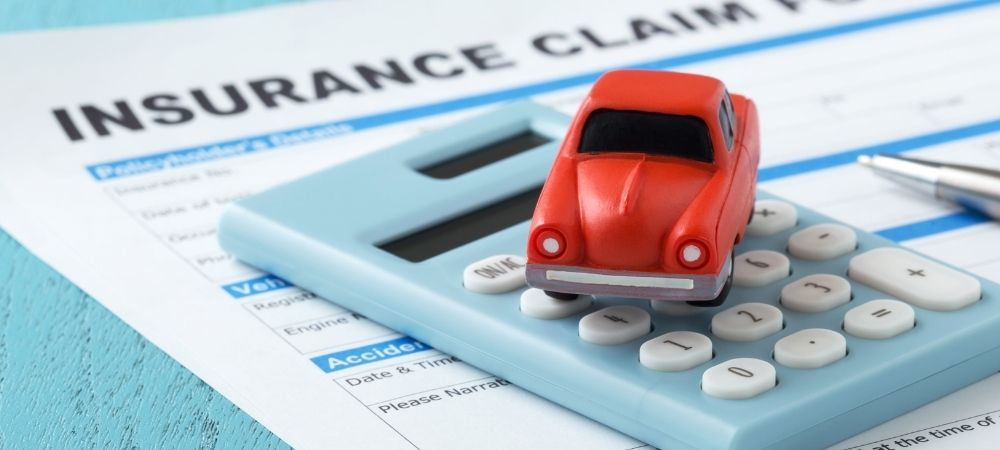
Loan vs. Lease
When wanting a car, the money factor tends to be the most crucial aspect. That’s why people tend to look for ways to finance this decision. That’s why today we’ll go over the main pros and cons between a loan vs. lease.
Along with their main differences, we’ll also show you how each payment method affects car insurance policies. Lastly, we’ll go over the primary coverages required when driving a vehicle.
So, keep on reading to learn more!
Main Differences Between a Loan vs. Lease

Loans and leasing are common alternatives when making any type of purchase, not only when buying a car. Nevertheless, each of these options varies a lot.
When you take a loan, you borrow money from the financial institution you’re working with. On the contrary, leasing involves a number of fixed monthly payments that help for better cash flow management. In other words, you rent the property of the other person.
When it comes to an auto loan vs. lease, auto lease payments are much more affordable than loan payments. Their lower price comes from the vehicle’s depreciation over time. However, when going for a loan, you end up having better long-term benefits, such as completely owning the car.
For this article, we’ll highlight four main aspects in which these arrangements differ. These aspects are the ownership of the vehicle, their monthly payments, limitations, and duration.
Ownership of the Vehicle
When it comes to owning a car, loans are the most straightforward solution. While you’re paying it, the bank or the financial service institution you’re working with owns the vehicle. After the loan is paid, the car is entirely yours.
Leasing a car, on the other hand, doesn’t make you its owner. Unless you purchase the vehicle at the end of your term, the lease acts as a long-term rental.
Monthly Payment Differences
Regarding their monthly payments, auto loans often base their finance charges on the car’s total price, taxes, and interest rates.
Leasing often considers other factors, such as the vehicle’s depreciation over time and rent charges. Also, leasing often requires a small security deposit or out-of-pocket costs for the first months.
Limitations Regarding Auto Leases and Loans
Leasing comes with much more limitations compared to getting a loan.
For instance, most people are aware of the mileage limitation, which is usually 15,000 miles a year. In case you go over this limit, leasing companies charge a fee per mile when exceeding this limit.
Another limitation of leasing is that you can’t make any customizations or alterations to the car. Lastly, if the company establishes that your vehicle has more wear and tear than what the lease term allows, you’ll likely need to pay an extra fee.
By going for a loan, you won’t deal with any of these limitations.
Duration of Car Loans vs. Leasing
Lastly, people must know the duration of each financing solution.
Leasing terms generally last between 2 and 4 years. Once the lease ends, you’ll need to return the car.
As we said earlier, you CAN buy the vehicle after the lease for the residual value. However, most people tend to go for leasing another car.
We then have loans, which can last between 4 and 7 years. The most common term nowadays is 72 months, which is roughly 6 years.
Besides monthly payments, car loans also offer you the down payment option. This alternative consists of a higher upfront cost for you to get lower monthly payments in the future.
Does the Payment Method Affect Car Insurance ?

Luckily, it doesn’t matter if you go for leasing or a loan. Neither of these options will affect your car insurance rates. Usually, the cost of your auto policy will be determined by factors such as your location, driving history, and the car’s model.
Moreover, you should list your car insurance policy for both leasing companies and banks. However, the coverage required for each option varies, which is why we’ll talk about the requisites of each.
Which Auto Insurance Policies Do You Need When Driving a Car ?

Unlike a driver’s license, you require an auto insurance policy to drive a new car legally. The minimum coverage required by law is liability insurance. Nevertheless, the alternative you’re going for your vehicle will affect the coverage you need.
Policies Required for a Car Lease
For auto leases, people need to count on minimum coverage as well as comprehensive insurance for the vehicle. Both of these coverages will help you pay for any collisions or damage done by the car at fault.
Coverage Needed for Financed Cars
Contrarily, auto loans require you to have full coverage instead of only liability insurance. A full-coverage will provide you what is equivalent to three separate insurance policies, which are liability, collision, and comprehensive insurance.
Additionally, you can opt for gap insurance. This type of coverage can help pay off your loan whenever an accident happens to your car, and you still owe more than the vehicle’s worth. This could be either when the car has been stolen or totaled.
In most cases, drivers tend to go for gap insurance when they owe more than the car’s depreciation value. This can happen when having made less than 20% of their payment or their loan is over 60 months.
Finally, when financing a brand-new car, then it’s always a great idea to purchase additional coverage for its specific model.
Choosing Between a Loan and a Lease Depends on You

As you can see, your decision between renting and buying a car depends on your needs.
For instance, if you drive less than 15,000 miles a year and look for lower monthly payments, then it’s best you lease a car.
However, if you’re looking for fewer restrictions and completely owning the vehicle, then you should definitely consider getting a loan.
Now that you know the main differences between a loan vs. lease, it’s time for you to choose the one that best suits your needs.
Remember that if you have any questions or concerns, you can contact our crew here at Pay-Less Insurance. We’re here to provide you the best assistance possible.
You can check out our car insurance policies as well if you’re ready to take the next step!
